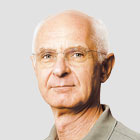Washington Times
November 11, 2010
Pg. 10
Inside The Ring
By Bill Gertz
The Pentagon's intelligence directorate is killing off one of its most strategically important mission areas: monitoring efforts by foreign governments to buy U.S. firms and technology, such as the multiple efforts by China's military-linked equipment company Huawei Technologies to buy into the U.S. high-technology sector.
Defense officials tell Inside the Ring that Thomas A. Ferguson, acting undersecretary of defense for intelligence (USDI) and a former Defense Intelligence Agency (DIA) space analyst, initiated the dismantling of the financial-threat intelligence monitoring.
Phi Beta Iota: US Intelligence is out of control–as good as some of the leaders are in terms of diversity of experience within the OLD system, they simply do not have the mind-set nor the authorities to restructure intelligence to the point that it can meet all appropriate needs. The person ostensibly responsible for strategy, a CIA body, has just been made deputy director of DIA, and we have no doubt that a “strategy” exists that might ultimately turn DIA into the analysis center and CIA into a collection management center (while NSA becomes the all-source processing center, all as outlined in Chapter 13 of ON INTELLIGENCE: Spies and Secrecy in an Open World) as well as all subsequent books such as INFORMATION OPERATIONS: All Information, All Languages, All the Time, this is all too little, too slow, too incoherent, and too expensive. An Open Source Agency (OSA) under diplomatic auspices, and a voluntary shift of $200 billion from Program 50 to Program 150 as a lure for Newt Gingrinch coming into the 2012 coalition cabinet under Obama running as an Independent (miracles do happen), are both essential.







